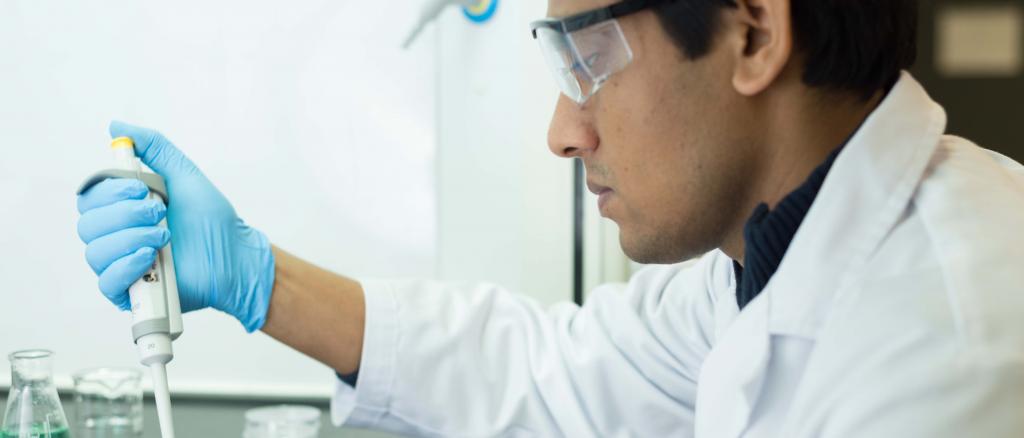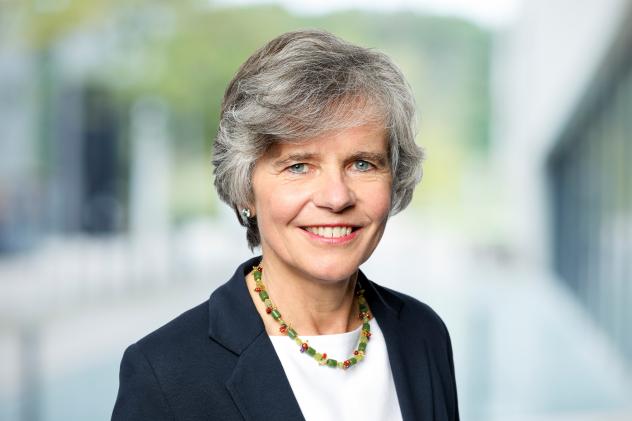
An overview of the projects funded from the funding line “Else Kröner Clinician Scientist Professorships” can be found here.
Physicians from university hospitals or other research facilities involving patient healthcare in Germany can apply
- who have attained outstanding achievements in research, patient healthcare and teaching
- who have undergone a Clinician Scientist program or are able to prove a leave of absence from clinical responsibilities for purposes of research lasting at least one year
- who are pursuing an innovative, convincing and internationally competitive scientific work program
- who may not be older than 40 years. This age limit can be raised in justified individual cases to be clarified with the foundation in advance due to family commitments (such as pregnancy, parental leave or caring for relatives), military service or alternate mandatory service in lieu of military service, or issues of a comparable nature.
On the part of the accepting university hospital and medical faculty thereof, prerequisite for an application is:
- the contractually designated time for research amounting to 50% of working hours to the benefit of the research share of the professorship
- the continued employment and assumption of personnel expenses for the patient healthcare share (50% of working hours) at the level commensurate with experience as per the collective bargaining agreement for physicians (“TVÄ”), including allowances
- that the title as professor acts preferentially toward appointment to a “W-Professorship” (official German salary scale), at least for the term of the Clinician Scientist Professorship
- the provision of possibilities within the organization and infrastructure (such as clinical position, staff, spaces for research, lab equipment) for successful implementation of a Clinician Scientist function.
The post-doctoral teaching qualification (Habilitation) or similar achievements and a completed residency (Facharztausbildung) at the time of application are required.
Please always take note of our current calls for applications/proposals for this line of funding. You can find them in the menu “Current Topics” under Call for Proposals.
Announcement of Clinician Scientist Professorships 2023
Perinatal Immunology
Here you can find further information.
Accelerating the Development and Practical Application of Anti-Infective Antibodies
Here you can find further information.
Translational Precision Medicine for Chronic Lung Diseases
Here you can find further information.
Announcement of Clinician Scientist Professorships 2022
New systems biology approaches toward studying kidney diseases
Here you can find further information.
Function and interaction between the blood-brain barrier and neuronal excitability as therapeutic strategies in the case of cerebral ischemia and central autoimmunity
Here you can find further information.
Clinical translation of next-generation imaging biomarkers using artificial intelligence.
Here you can find further information.
Announcement of Clinician Scientist Professorships 2021
Else Kröner Clinician Scientist Professorship: Translational research and innovative clinical trials
The COVID-19 pandemic has highlighted the importance of the rapid transfer of findings from molecular and clinical research into clinical routine. The "W3 professorship for translational research and innovative clinical studies" aims to integrate data from clinical-epidemiological databases, imaging, bioinformatics and molecular biology in an interdisciplinary approach and to transfer it into guideline-relevant clinical studies and individualized therapeutic approaches. Using this approach, clinical innovation will be accelerated and scientific innovation will be faster accessible. This should enable more efficient development of new drugs and therapies and improve therapeutic action in everyday clinical practice. In terms of content, the professorship is based in the Clinic for Intensive Care Medicine, and is particularly geared towards the two established scientific foci of the faculty cardiovascular research and the research area immunology, inflammation and infectious diseases.
Here you can find further information.
Else Kröner Clinician Scientist Professorship: Professor ship for Atrial Arrhythmopathy
Atrial fibrillation, with three to four percent of the population being affected and a steadily growing number of patients, is not only the most common cardiac arrhythmia worldwide but also a major cause of thromboembolic events. Currently available treatment options show high recurrence rates and low efficiency. Due to the limited understanding of pathophysiological mechanisms underlying atrial cardiomyopathy, available therapies are still insufficient. Therefore, the purpose of the professorship for "Atrial Arrhythmopathy" will be uncovering molecular and cellular electrophysiological causes resulting in the development of atrial cardiomyopathy. Based on the identification of essential pathophysiological mechanisms, new therapeutic approaches against atrial fibrillation shall be established.
Here you can find further information.
Else Kröner Clinician Scientist Professorship: Towards deciphering the interaction between immunological escape mechanisms and metabolic requirements in pancreatic cancer
Tumors can evade immune surveillance by employing different escape mechanisms. Several immunotherapies can block relevant elements in these escape mechanisms and enable an immune response attacking tumor cells. This therapeutic strategy has proven to be effective in multiple tumor entities, however not in pancreatic cancer. A detailed understanding of the complex immunological processes in pancreatic cancer is therefore urgently needed. The metabolic requirements of tumor and immune cells have a critical influence on the response to immunotherapy. The research project led by PD Dr. Lena Seifert aims to decipher relevant interactions between immunological escape mechanisms and metabolic requirements in pancreatic cancer with, ultimately, the development of innovative therapeutic strategies.
Here you can find further information.
Else Kröner Clinician Scientist Professorship: Professorship of immunomodulation through targeted cell trafficking
The trafficking of immune cells between and within different organs plays a key role in the development of chronic inflammation. In particular, this has been established in inflammatory bowel diseases such as Crohn’s disease and ulcerative colitis and has led to new therapies.
In the frame of this Clinician Scientist Professorship, I will investigate innovative precision approaches centering around immune cell trafficking to develop novel therapeutic options and to optimize existing treatments. We especially focus on exploring, how immune cells in the tissue lead to disease flares, how the deformability of cells impacts on their trafficking, how immune cell trafficking contributes to the communication of the gut with other organs and how the efficacy of therapeutic agents interfering with cell trafficking can be predicted in a personalized way.
Here you can find further information.
Announcement of Clinician Scientist Professorships 2020
Else Kröner Clinician Scientist Professorship: Deciphering the impact of amino acid metabolism on intestinal immunity and chronic inflammation
Konrad Aden is interested in the molecular pathophysiology of inflammatory bowel disease(IBD). IBD is characterized by fundamental disturbance of the amino acid metabolism, but the underlying molecular cause remains elusive. The aim of his research is to decipher the cause and consequences of disrupted amino acid immunometabolism and to translate key molecular findings into novel diagnostic and therapeutic approaches in the management of IBD.
Else Kröner Clinician Scientist Professorship: Neurogenic Dysphagia - Pathophysiology, Diagnosis und Innovative Therapeutic Strategies
The act of swallowing is a complex sensorimotor function which is processed in a distributed neural network. Therefore, disturbance of swallowing function (dysphagia) is a prevalent symptom of many neurological diseases, e.g. stroke. Dysphagia leads to major complications such as airway infections, malnutrition and long-time dependency on a feeding tube. Evidence-based treatment options are still limited. PD Dr. Sonja Suntrup-Krüger’s scientific interest is in the brain control mechanisms of swallowing in health and disease and neurostimulation methods to enhance dysphagia rehabilitation. She wants to get new insights into neuroplasticity mechanisms of the brain with functional neuroimaging to further optimize these innovative treatment strategies.
Else Kröner Clinician Scientist Professorship: Cardiovascular Systems Immunology
Cells of the adaptive immune system, T and B lymphocytes, protect against viruses and bacteria during infection. In autoimmune disease, however, autoreactive immune cells recognize endogenous proteins and destruct tissues and organs. Atherosclerosis is a chronic inflammatory disease of arteries that lead to the build-up of vessel-occluding plaques and causes myocardial infarction and stroke. Atherosclerosis is understood as partial autoimmune disease as autoreactive, pathogenic immune cells can be found in atherosclerotic arteries. As part of his professorship, Wolf aims to systematically describe the cellular immune response in patients with atherosclerotic disease. His work may lead to the development of novel diagnostic and therapeutic strategies in immune-mediated cardiovascular disease.
Announcement of Clinician Scientist Professorships 2019
Else Kröner Clinician Scientist Professorship: Translational Pancreatic Surgery
Ihsan Ekin Demir researches the influence of the nervous system on the origin and progression of pancreatic cancer. In nearly 100 percent of the cases, tumor cells from the pancreas invade nerves and use them to spread the tumor at an early stage. Within the course of the professorship Demir wants to develop new molecular therapy strategies against this so-called “neural invasion”.
PD Dr. Ihsan Ekin Demir, Ph.D. studied medicine at the Ruprecht Karl University of Heidelberg and at the Technical University of Munich. He received his degree in medicine in 2011 in Munich. He subsequently worked as intern at the Clinic and Polyclinic for Surgery (Director: Univ.-Prof. Dr. H. Friess) of the “Klinikum rechts der Isar”, the university hospital at the TU Munich, and successfully completed his advanced training as a medical specialist for visceral surgery in 2016. During the specialist training he also completed the PhD program at the TU Munich to be able to continue to work as a scientist alongside his clinical activity. He acquired his post-doctoral teaching qualification in 2016 in Munich. Since 2019 he functions in a capacity as chief resident at the Clinic and Polyclinic for Surgery of the “Klinikum rechts der Isar” and heads the Pancreas Research Laboratory at the Clinic for Surgery. In 2019 he was honored with the acclaimed Rising Star Award from the United European Gastroenterology (UEG) organization.
Clinician Scientist Professorship: Approaches in artificial intelligence toward establishing personalized and targeted therapies for leukemias and lymphomas
Sascha Dietrich pursues the goal to predict the best suitable therapy for patients with forms of leukemia and lymphomas, and to avoid the detrimental side effects of an ineffective therapy. To accomplish this, tumor cells at different levels are characterized in a highly detailed manner and linked with clinical progression using “artificial intelligence” methods to enable individual predictions to be made regarding the response to therapy.
PD Dr. Sascha Dietrich concluded his studies in medicine and received his M.D. from the Friedrich Schiller University of Jena in 2008. Within the course of his advanced training as a medical specialist for internal medicine and hematology-oncology at Heidelberg University Hospital he specialized in lymphoid malignancies and cellular therapeutic treatments such as allogeneic stem cell transplantation. In addition to training as an internist he attained qualification as an emergency physician in 2011. Subsequent to specialist training, in 2014 he completed a 2-year post-doctoral training program in bioinformatics at the European Molecular Biology Laboratory (EMBL) in Heidelberg. In 2016 he was appointed chief resident at the Clinic for Hematology, Oncology and Rheumatology in Heidelberg. Since 2016 he is group leader of the junior research group in the field of systemic medicine, which is supported by BMBF, the German Federal Ministry of Education and Research. Since 2017 he also functions in a capacity as group leader for the Molecular Medicine Partnership Unit. He acquired his post-doctoral teaching qualification at the university in Heidelberg in 2017.
